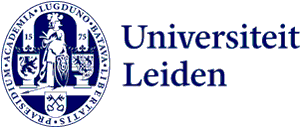
Sustainability Day: Sustainability embedded in our education
In our teaching, Leiden University gives all students the opportunity to learn about sustainability themes and issues. Social issues, including sustainable development, are addressed in the teaching and research at all of our faculties. On this Day of Sustainability, we highlight a number of subjects.
By providing students with the knowledge and skills needed to resolve complex sustainability issues, they will be able to play a role in the sustainability challenges of the coming decades. By using the Sustainable Study Guide, students can explore our offering. They can find various programmes that focus on the theme of sustainability, as defined in the Sustainable Development Goals.
Teachers explain the learning outcomes of their subject, while students share the skills they have developed, among other things. And, of course, they reflect on why they want to explore this topic in depth.
Scientific understanding of the climate system
Joeri Reinders teaches the course Climate Change. In this course, students gain extensive scientific insight into the climate system, become involved in current debates on climate change, and explore strategies for addressing this global issue. Joeri: ‘Teaching about climate change is always challenging, as it can feel like an immense crisis. However, as a scientist, I find hope in seeing new students engage with the topic and become the active change-makers that we need to change the course we are on as a global community.’
Lotte van Renswoude studied the subject with Joeri: ‘Sustainability isn’t just about preservation; it’s about embracing nature’s intelligence and combating misinformation, particularly climate change denial.’ Read the full interviews with Joeri and Lotte.
The climate crisis as a relational crisis
Jelle Buijs teaches Sustainability and Health. This course explores the interconnectedness and interdependence of personal, societal and planetary well-being by studying the social and human dimensions of climate change. Jelle: ‘Drawing on the “relational turn” in the social sciences and the humanities, this course approaches the climate crisis as a relational crisis between ourselves, others, and nature.'
Jules Murray studied the subject with Jelle: ’Nature gives so much to me every day and teaches me invaluable lessons about life. I feel compelled to give back, fostering the sense of kinship that Robin Kimmerer so wonderfully describes.’ Read the full interviews with Jelle and Jules.
Het gemis van een collectief bewustzijn over de natuurlijke geschiedenis
Marc Argeloo teaches Memory and the Environment. This course examines the fragmented, selective and incomplete way in which people remember changes in the environment that they themselves have caused. Marc: ’As humanity, we apparently do not have the capacity to absorb “the history of nature”; we lack a collective natural history consciousness.’
Linda Tali studied the subject with Marc: ‘Even if we, as individuals, could buy anything and everything in the world without our habits making a dent into Mother Nature, in the end it hasn’t made us happier human beings. As such, overconsumption isn’t benefiting us neither The Earth.’ Lees de full interviews with Marc and Linda.
The sustainable university
At Leiden University, we are continuously working to create a sustainable work and study environment, to integrate sustainability in our teaching, and to carry out sustainability research. We want to inspire and mobilise people, within and outside the University community, to realise a positive societal impact.
Our Sustainability Vision 2030 gives you an impression of our policy for the coming years, and in our Sustainability Monitor (in Dutch) you can see what we have achieved so far. See also how staff and students can do their bit. Together, we can make the university more sustainable.
